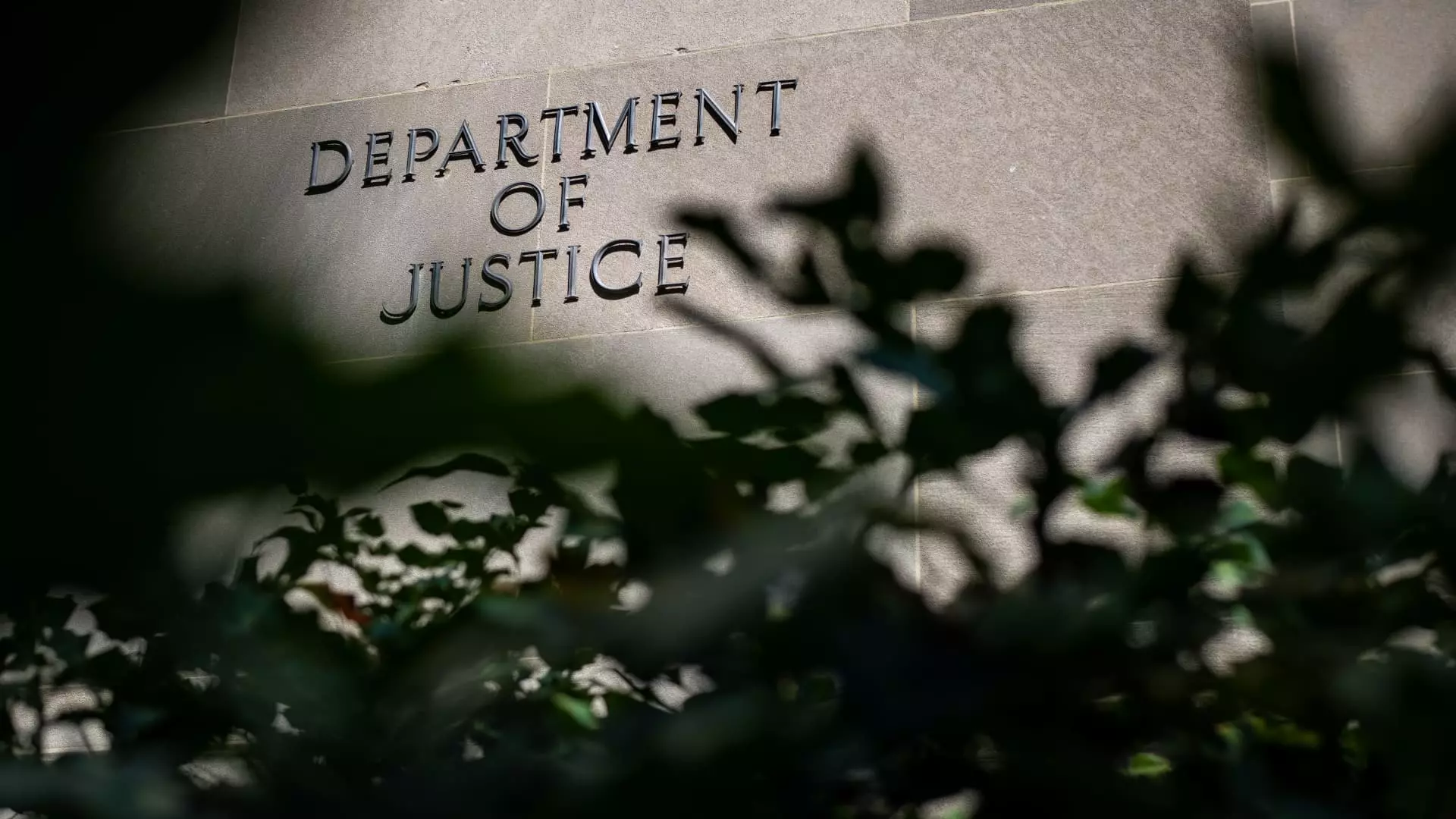In an unprecedented move that has left many experts and advocates reeling, the U.S. Justice Department has disbanded its National Cryptocurrency Enforcement Team (NCET). This decision, highlighted in a memo from Deputy Attorney General Todd Blanche, marks a drastic shift in the federal approach to the burgeoning world of cryptocurrency. While proponents of a laissez-faire market may applaud this deregulation, it’s essential to scrutinize the long-term implications for both investors and the integrity of financial systems.
The Justice Department’s newfound strategy aims to decentralize enforcement efforts to local U.S. attorney’s offices, emphasizing a focus on crimes of terrorism and other severe violations. Such a pivot raises significant concerns regarding who will actually hold power to regulate the intricate and often murky waters of digital assets. The question that inevitably arises is whether this decentralized model can effectively manage the complexities of a global market that has proven problematic enough to require a dedicated agency in the first place.
Escaping Accountability or Costly Misdirection?
The Justice Department’s memo warrants careful analysis, especially given its directive to drop ongoing investigations that do not align with the new prioritization. This signals a troubling trend toward minimizing accountability for exchanges and services involved in digital currencies. By suggesting that transactions and operations carrying “unwitting violations of regulations” will not result in punitive measures, the policy appears to foster an environment ripe for exploitation. Weakening the mechanisms designed for oversight can give malicious actors the leverage they need to navigate the crypto market unscathed.
Moreover, the memo’s reluctance to prosecute those engaged in unlicensed money transmission or unregistered securities offerings unless “willful” violations are proven is a slippery slope. It opens the door for businesses to operate in gray areas, potentially jeopardizing the financial safety of the very investors the DOJ claims to protect. In a landscape characterized by rapid innovation, the distinction between innocent ignorance and criminal intent may become blurred, with disastrous repercussions for individuals who put their far-too-trustful faith in these systems.
The Political Landscape Behind the Scenes
This latest alteration in policy must be viewed through the lens of current political dynamics, especially considering its alignment with President Trump’s administration—which appears to be harnessing a pro-crypto agenda. Trump’s overt connections to the digital asset industry add a layer of suspicion to this deregulation. With his family engaging in crypto ventures worth hundreds of millions, it is difficult not to question whether personal stakes are influencing national policy.
Under the precedent set by the Trump administration, financial regulators have seen an unwarranted scaling back of their purview, raising concerns about the motives behind loosening restrictions. Advocating for “open access” to blockchain networks sounds attractive until we consider the consequences of unchecked financial activities that have long been under scrutiny. Is it possible that the aim here is not merely to foster innovation but to enable a system in which personal wealth and corporate interests can flourish at the expense of consumer safety?
Future of Cryptocurrency or Recipe for Disaster?
As the Justice Department condenses its efforts to address only those elements involving investor fraud or severe criminal endeavors like terrorism and human trafficking, it remains critical to examine the broader implications of this deregulatory trend. The assertion that litigation aimed at establishing regulatory frameworks will cease reflects a significant pivot back to a free market ideology—an ideology that overlooks many of the past abuses in this under-regulated arena.
In light of this, investors must be wary of the vulnerabilities associated with relying on a system that lacks robust protections. The cryptocurrency market has already displayed its volatility; the recent drops in market valuation should stand as a cautionary tale of what can happen when regulatory safeguards are weakened. While advocates might champion this as a return to free-market principles, the potential for a disastrous fallout should not be understated, especially in a digital space known for its blend of innovation and deception.
The landscape is changing rapidly, and amidst these transformations, the responsibilities of regulators and the protections for investors are at serious risk of erosion. With the Justice Department’s radical shift and political machinations at play, the future of cryptocurrency remains challenging to navigate. Investors, both new and seasoned, must remain vigilant as they tread in uncertain waters devoid of the critical oversight that once sought to safeguard their interests.

Leave a Reply